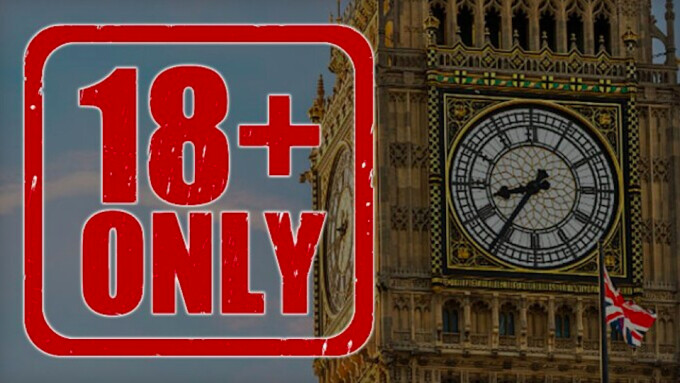LONDON — Boris Johnson’s Conservative government in the U.K. has finally unveiled its controversial “Online Safety Bill,” and introduced it in Parliament today.
The government focused on “pornography” as the main supposed “online harm.”
The Online Safety Bill, the Johnson government claims, “will protect children from harmful content such as pornography and limit people’s exposure to illegal content, while protecting freedom of speech.”
The lengthy announcement about the proposed legislation declared that the bill’s main mission is for “Parliament to approve what types of ‘legal but harmful’ content platforms must tackle.”
The U.K. is a “constitutional monarchy” with no written constitution, bill of rights, First Amendment or codified Section 230 protection for the monarch’s subjects.
Grandiose Claims About 'Online Safety'
The Conservative government’s statement, published via the official gov.uk website, rather grandly claims the proposed measures are, in fact, “the world-first online safety laws.”
“Internet users are one step closer to a safer online environment as the government’s new world-leading online safety laws are brought before parliament today,” proclaimed the statement signed by Boris Johnson’s Department for Digital, Culture, Media & Sport and its leading official, Conservative MP Nadine Dorries.
“The Online Safety Bill marks a milestone in the fight for a new digital age which is safer for users and holds tech giants to account,” the government statement continued.
Chief targets of the bill are “social media platforms, search engines and other apps and websites allowing people to post their own content” — like OnlyFans or Pornhub, or mainstream sites like Twitter or Reddit, which tolerate adult content — “to protect children, tackle illegal activity and uphold their stated terms and conditions.”
Elevating Politicians as a New Online Censorship Body
The bill sets up the appointed U.K. officials running Ofcom, the government's communications regulatory agency, to become essentially a censorship body with “the power to fine companies failing to comply with the laws up to 10% of their annual global turnover, force them to improve their practices and block non-compliant sites.”
Johnson’s government also explicitly threatened “executives whose companies fail to cooperate with Ofcom’s information requests [with] prosecution or jail time within two months of the Bill becoming law, instead of two years as it was previously drafted.”
The government’s statement boasts of literally “a raft of other new offenses [which] have also been added to the Bill to make in-scope companies’ senior managers criminally liable for destroying evidence, failing to attend or providing false information in interviews with Ofcom, and for obstructing the regulator when it enters company offices.”
MP Dorries stated that, after the bill’s passage, “social media platforms will only be required to tackle ‘legal but harmful’ content, such as exposure to self-harm, harassment and eating disorders, set by the [Conservative] government and approved by Parliament.”
Also included within “harmful content,” however, is whatever the current government decides to define as “pornography.”
A 'Constitutional Monarchy' Without First Amendment Protections
Previous versions of the bill and statements by politicians and activists also appeared to target something called “violent pornography” or “extreme pornography,” the definition or assessment of which would be left to the discretion of government officials.
“Previously,” Dorries continued, platforms “would have had to consider whether additional content on their sites met the definition of legal but harmful material. This change removes any incentives or pressure for platforms to over-remove legal content or controversial comments and will clear up the grey area around what constitutes legal but harmful.”
The bill also presents a peculiar version of "freedom of the press" for the First Amendment-less U.K. with a special category of “recognized media outlets” which would get blanket protection to make any statements — regardless of accuracy — without platforms being able to do anything about it.
A Nightmarish Vision of the 'Depraved' Internet
Conservative Minister of State for Security and Borders Damian Hinds added his own vision of the internet where “the most depraved criminals have been given fresh avenues to exploit vulnerable people and ruin lives, whether that be by stealing the innocence of children or destroying finances.”
The new bill very specifically singles out “all websites which publish or host pornography, including commercial sites,” to “put robust checks in place to ensure users are 18 years old or over.”
The small print in the announcement includes the reveal that “the agreed categories of 'legal but harmful' content will be set out in secondary legislation and subject to approval by both Houses of Parliament. Social media platforms will only be required to act on the priority legal harms set out in that secondary legislation, meaning decisions on what types of content are harmful are not delegated to private companies or at the whim of internet executives.”








